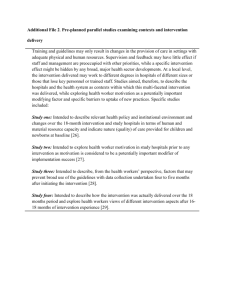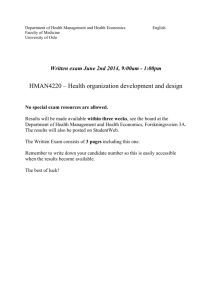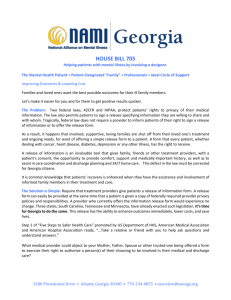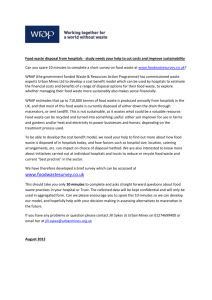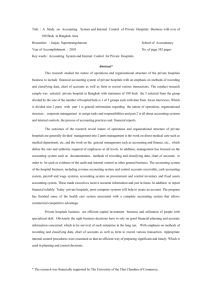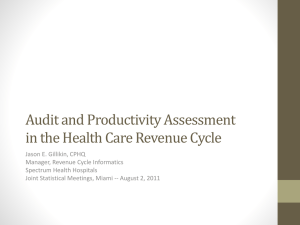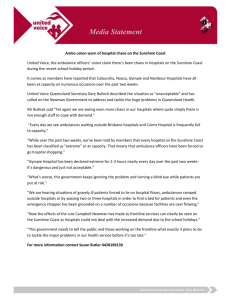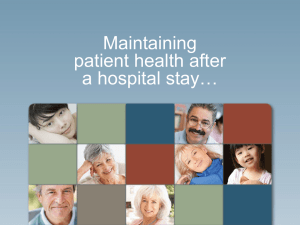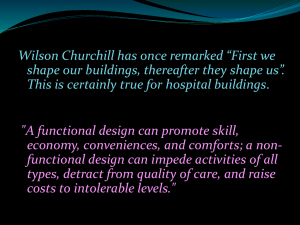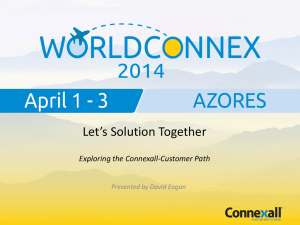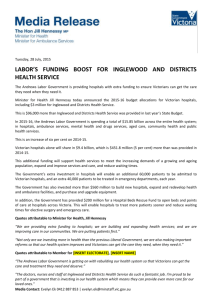009 - Healthcare provider (Word 17 KB)
advertisement
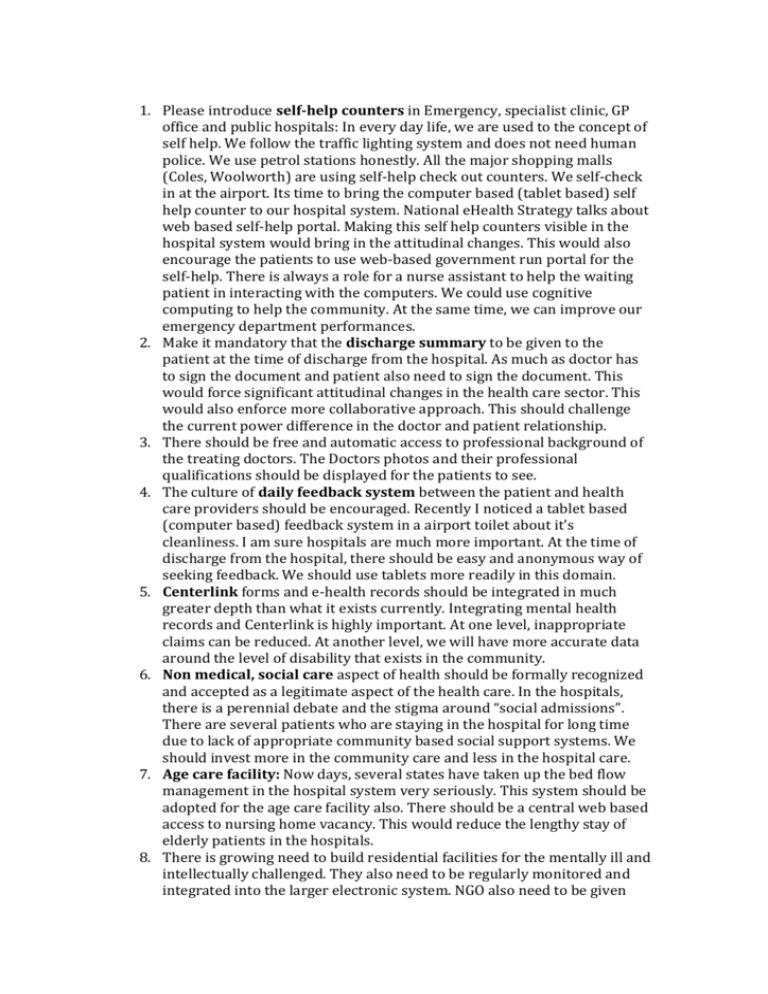
1. Please introduce self-help counters in Emergency, specialist clinic, GP office and public hospitals: In every day life, we are used to the concept of self help. We follow the traffic lighting system and does not need human police. We use petrol stations honestly. All the major shopping malls (Coles, Woolworth) are using self-help check out counters. We self-check in at the airport. Its time to bring the computer based (tablet based) self help counter to our hospital system. National eHealth Strategy talks about web based self-help portal. Making this self help counters visible in the hospital system would bring in the attitudinal changes. This would also encourage the patients to use web-based government run portal for the self-help. There is always a role for a nurse assistant to help the waiting patient in interacting with the computers. We could use cognitive computing to help the community. At the same time, we can improve our emergency department performances. 2. Make it mandatory that the discharge summary to be given to the patient at the time of discharge from the hospital. As much as doctor has to sign the document and patient also need to sign the document. This would force significant attitudinal changes in the health care sector. This would also enforce more collaborative approach. This should challenge the current power difference in the doctor and patient relationship. 3. There should be free and automatic access to professional background of the treating doctors. The Doctors photos and their professional qualifications should be displayed for the patients to see. 4. The culture of daily feedback system between the patient and health care providers should be encouraged. Recently I noticed a tablet based (computer based) feedback system in a airport toilet about it’s cleanliness. I am sure hospitals are much more important. At the time of discharge from the hospital, there should be easy and anonymous way of seeking feedback. We should use tablets more readily in this domain. 5. Centerlink forms and e-health records should be integrated in much greater depth than what it exists currently. Integrating mental health records and Centerlink is highly important. At one level, inappropriate claims can be reduced. At another level, we will have more accurate data around the level of disability that exists in the community. 6. Non medical, social care aspect of health should be formally recognized and accepted as a legitimate aspect of the health care. In the hospitals, there is a perennial debate and the stigma around “social admissions”. There are several patients who are staying in the hospital for long time due to lack of appropriate community based social support systems. We should invest more in the community care and less in the hospital care. 7. Age care facility: Now days, several states have taken up the bed flow management in the hospital system very seriously. This system should be adopted for the age care facility also. There should be a central web based access to nursing home vacancy. This would reduce the lengthy stay of elderly patients in the hospitals. 8. There is growing need to build residential facilities for the mentally ill and intellectually challenged. They also need to be regularly monitored and integrated into the larger electronic system. NGO also need to be given some access to the electronic health records. This would validate their role in holistic health care. 9. Private and public integration: It’s hard to get any discharge summary or notes from the private psychiatric hospitals. I am not sure about the medical and surgical private hospitals. Hopefully with better engagement of Private system with the PCEHR, this should change. I hope insurance company demand the same level of openness from the private hospitals. 10. I hope with the role out of PCEHR, government will have more data on the level of psychotropics prescribed. There is urgent need for national level strategy to address the problem of over diagnosis and over medication in the field of psychiatry. Healthcare recipient
